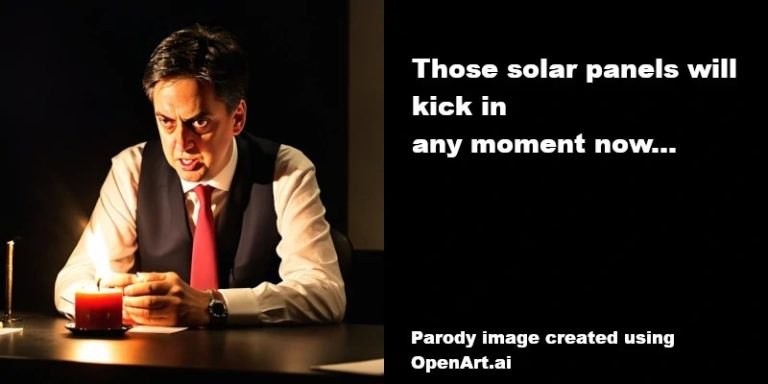Article by Eric Worrell
Unless there’s another cold snap like January 2024?
Britain's last coal-fired power station to close
2 days ago
Alex Smith
BBC News, NottinghamThe closure of Britain's last coal-fired power station has been described by officials as a “hugely important milestone” in energy production.
Ratcliffethal power station in Nottinghamshire is due to close early next week and will be dismantled following decommissioning, which is expected to take two years.
The site is an East Midlands landmark and has been producing energy since 1967, enough to produce more than one billion cups of tea every day.
Mike Lewis, chief executive of Uniper, which owns the site, told the BBC that closing the site was a key step “on the path to global decarbonization”.
…
Confirming plans to build a clean energy technology park at the site, Mr Lewis said the closure was “a hugely important milestone on the path to global decarbonisation”.
Asked whether a clean energy and blackout-free future was possible, he said “absolutely,” adding that solutions were currently being worked on.
…
Learn more: https://www.bbc.com/news/articles/ckgn4gg5y2yo
As early as January this year, Ratcliffe began to “step up” to deal with the cold snap and renewable energy shortage;
Britain's last coal-fired power station ramps up power generation as cold snap hits
January 15, 2024 • 6:26 pm
Britain is relying on its last remaining coal-fired power plants to boost electricity supplies as the Arctic blast hits the country.
Energy Dashboard data showed coal accounted for the largest share of power generation since November on Monday.
At the beginning of this week, the UK's last active coal-fired power station, Ratcliffe-on-Soar, accounted for 3.4% of the UK's total electricity generation, well above the annual average.
Power generation contributed 2.3% over the past week, one of the highest levels in the past 12 months, and it is likely to be the busiest week in at least a year.
At the same time, temperatures in the UK have plummeted and may drop to -10 degrees Celsius in the next few days. This is expected to lead to increased electricity demand.
…
Find out more: https://www.telegraph.co.uk/business/2024/01/15/ftse-100-markets-latest-news-house-price-rise-live-updates/
Of course, no one in the UK should worry about winter blackouts – Ed Miliband, the UK’s net-zero energy security secretary, apparently plans to use solar farms and rooftop solar to heat homes over the winter.
UK government approves three major solar farms, promising rooftop solar 'revolution'
The Department of Energy Security and Net Zero (DESNZ) has granted planning permission to build three major solar farms in the east of England in a bid to decarbonise the UK electricity system by 2030.
Energy security and net zero minister Ed Miliband has today (15 July) given the go-ahead for the low-carbon Gate Burton Energy Park in Lincolnshire, Suffolk/Cambridge Sunnica Energy Farm on the county border and Mallard Pass Solar Farm on both sides of the UK.
Sunnica and Gate Burton each have a generating capacity of 500 megawatts (MW), while Mallard Pass has a generating capacity of 350 MW.
Their combined capacity is about two-thirds of the 1.9 gigawatts (GW) of rooftop and ground-mounted solar installed last year, according to Solar Media.
The government will soon unveil plans to boost rooftop solar and support these large ground-based schemes.
…
Learn more: https://www.edie.net/uk-government-approves-Three-major-solar-farms-promises-rooftop-solar-revolution/
The UK averages about 62 sunny days (1500 hours) per year, but obviously it's unfortunate to have windless cold snaps during periods of low sunshine, as happened last January. Regardless, global warming will put an end to Britain's cold snap. Any time now.
Relevant
